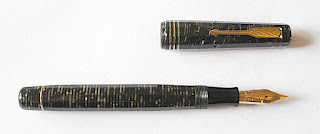Beware of the Risen People
 |
| The legend is hard to read, but it is "Beware of the Risen People That Have Harried and Held Ye That Have Bullied and Bribed |
April 24, 1916 marked the beginning of the Easter Rising which touched off the final struggle for Irish independence from Great Britain. The English have a long and bloody history on this island and in 1916 a group of Irish patriots masde the conscious decision to martyr themselves hopefully to touch off a revolt. They succeeded, and by 1922 Ireland was on its way toward independence, but sixteen leaders of the revolt who seized the General Post Office and proclaimed independence would be dead after drumhead courts martial (the trials were held in private without defense) and a series of executions between May 2 and 13, many of them in the Stonebreaker’s Yard at Kilmainham Gaol where we started our day.
 |
| Our tour guide was Mick, at the right. This is one of the earliest cell blocks from the end of the 18th century. Believe it or not Kilmainham was an experiment in prison reform |
 |
| A slightly newer gallery, more room for prisoners, more light, more air |
 |
| And then in the 19th century a Benthamite Panopticon. In theory the prisoners never had privacy, kept complete silence and were on their own 23 hours a day. |
 |
| These cells were larger and lighter than the earlier ones. |
 |
| Through these gates fourteen of the sixteen executed for the Rising would be led to their deaths by firing squad in the Stonebreaker's Yard |
 |
| Mick tells it all |
In our two previous visits we have become aware of how intensely the Irish feel their history, and certainly the guides at the Gaol and the General Post Office bore that out. Both tours were thorough, informative, and heartfelt.
On Wednesday we pick up our car and head south for Kilkenny.
 |
| Model of the General Post Office as it was built in between 1814 and 1816. |
 |
| Our guide at the GPO museum, whose name I do not know, shows the crowds on Sackville Street as it was then known, for Parnell's funeral. She did a fine job of leading us through the museum. |
 |
| Today the GPO remains a post office. |









Comments